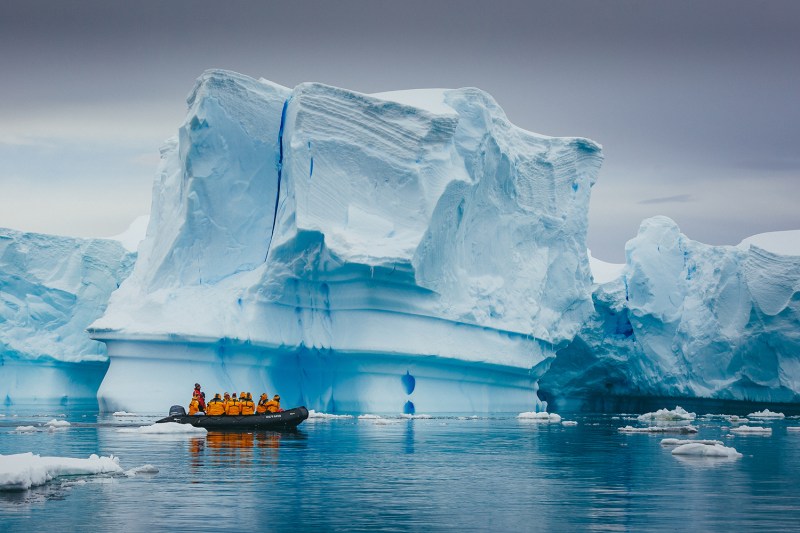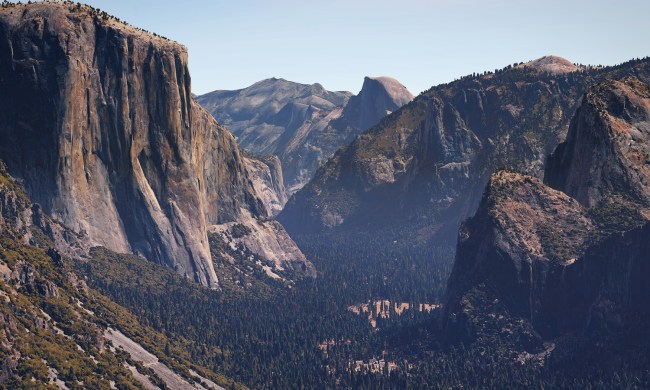
If the winter holidays fill you with more dread than cheer, why not give yourself the gift of getting away? Airbnb has just the thing for you. Last week, the travel platform announced it will send five volunteers to join scientist Kirstie Jones-Williams on a month-long scientific research mission in Antarctica this December.
Yes, you read that right. While your family, friends, and coworkers are suffering through White Elephant swaps and the endless loop of holiday carols, you could be exploring one of Earth’s final frontiers in an effort to save the planet. You might even be enjoying (slightly) warmer weather — December is Antarctica’s summer, after all.
This once-in-a-lifetime trip starts with a two-week visit to Punta Arenas, a city at the southernmost tip of Chile, where the five participants will undergo immersion training in preparation for their time on the continent. You’ll take courses on glaciology, practice field sampling, and get acquainted with the lab work you’ll be doing.
Once your training is complete, you’ll fly from Chile to Antarctica, your plane landing on a naturally formed blue-ice runway. You’ll only spend a week on the southernmost continent, but you’ll be kept busy collecting and studying snow samples for microplastics to determine how far waste and pollution has traveled across the world.
Don’t worry — this experience isn’t all work. In between lab sessions, you’ll visit some of the world’s least-seen natural wonders, such as the Drake Icefall, Charles Peak Windscoop, and Elephant’s Head. You’ll even get to walk “around the globe” during a visit to the actual South Pole.
Given that this is Airbnb hosting, you may wonder where you’ll be staying. We hear it’ll be at Three Glaciers Retreat, a surprisingly cushy outpost deep within the continent that provides gourmet meals, vintage linens, and hot showers to intrepid travelers like yourself.
Your mission ends with a return visit to Punta Arenas, where you’ll serve as Ocean Conservancy ambassadors, delivering insights on how the Airbnb community and the world at large can minimize our collective plastic footprint.
Unlike most Airbnb experiences, the Antarctic Sabbatical is only accepting five participants and requires some pretty steep qualifications. You don’t have to be a scientist yourself, but Kirstie Jones-Williams, the Ph.D candidate leading the expedition, is looking for applicants with passion, grit, and a rigorous work ethic.
“This expedition will help us understand the pathways of microplastics to remote regions such as Antarctica and comes at a critical time to highlight our responsibility to protect our natural world. This expedition will be hard work, with scientific rigor required during unforgiving wintery conditions. We are looking for passionate individuals, with a sense of global citizenship, who are excited to be a part of the team and to return home and share our findings with the world.”
Airbnb’s Sabbatical program is designed to inspire people to take advantage of earned time off to give back to the people and places around them for a life-changing experience. The Antarctica trip is Airbnb’s second Sabbatical offering, a follow-up to an urban regeneration project that took place in Italy earlier this year. While Antarctica might seem like a pretty wide left turn, the trip is a natural next step in Airbnb’s effort to build its reputation as a leader in sustainable, environmentally progressive travel. While some have sniffed at the Sabbatical experiences as “crisis capitalism,” we think it can’t be all bad to satisfy your travel bug while doing some good work and stoking the fire of advocacy. We think it sure beats visiting Antarctica on a cruise ship.
Applications for the Antarctica Sabbatical can be submitted here until Tuesday, October 8 at 11:50 p.m. ET. According to Airbnb program guidelines, participants will be selected based on criteria such as operation of an existing platform (i.e., showing that people will listen to them) and demonstration of an ability to “engage in dialogue with diverse audiences and educate others on complex topics in the future.”


